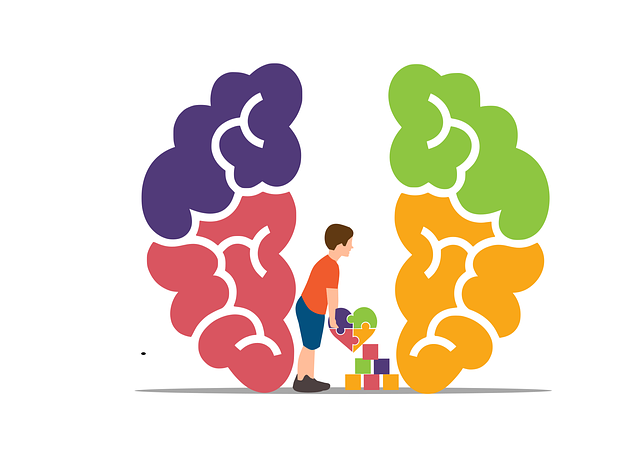Lone Tree Christian Counseling Therapy emphasizes the importance of emotion regulation as a powerful tool for maintaining mental health and overall well-being. Through evidence-based techniques like mindfulness practices and cognitive restructuring, they equip individuals with skills to recognize, understand, and manage emotions effectively. Regular practice, including stress reduction methods and self-reflection, is key to mastering these skills, leading to improved emotional well-being, enhanced relationships, and better navigation of life's challenges. Lone Tree provides professional support and specialized services tailored to individual needs, fostering inner strength and resilience for healthy emotion management.
Emotion regulation is a vital skill for maintaining mental and emotional well-being, ensuring resilience, and fostering healthy relationships. At Lone Tree Christian Counseling Therapy, we recognize its profound impact on daily life. This article explores why mastering emotion regulation is crucial, delving into common techniques taught by professionals to help individuals navigate their emotions effectively. We’ll guide you through practical strategies for implementation in daily life, highlighting the essential role of professional support in this transformative process.
- Understanding Emotion Regulation: Why It's Essential for Well-being
- Common Techniques in Emotion Regulation Teaching
- Implementing Strategies for Effective Daily Practice
- The Role of Professional Support in Mastering Emotion Regulation Skills
Understanding Emotion Regulation: Why It's Essential for Well-being

Emotion regulation is a crucial skill that plays a pivotal role in maintaining overall well-being and mental health. It involves recognizing, understanding, and managing one’s emotions effectively, ensuring they serve as useful guides rather than overwhelming forces. This process is essential for navigating life’s challenges and stressors without resorting to unhealthy coping mechanisms or experiencing burnout.
At Lone Tree Christian Counseling Therapy, we emphasize the importance of emotion regulation techniques in fostering mental health awareness and boosting confidence. By learning these skills, individuals can gain a deeper sense of self-awareness, improve their relationships, and enhance their overall quality of life. It’s a powerful tool for personal growth and resilience, enabling people to face life’s twists and turns with equanimity and grace.
Common Techniques in Emotion Regulation Teaching

Emotion regulation teaching introduces individuals to a suite of techniques designed to help them manage their feelings effectively. Among the most common methods are mindfulness practices, which encourage focusing on the present moment and non-judgmentally observing emotions as they arise. Lone Tree Christian Counseling Therapy incorporates these strategies to aid clients in cultivating awareness and acceptance, fostering healthier responses to emotional triggers.
Another widely used technique is cognitive restructuring, which involves identifying and challenging negative thought patterns contributing to intense emotions. By applying mind over matter principles, individuals learn to reframe their perspectives, thereby improving mood management and preventing burnout. These evidence-based approaches are integral to the counseling services provided at Lone Tree Christian Counseling Therapy, aiming to empower clients with practical tools for enhancing emotional well-being.
Implementing Strategies for Effective Daily Practice

Implementing strategies for effective daily practice is key to mastering emotion regulation techniques. At Lone Tree Christian Counseling Therapy, we emphasize the importance of consistent application. Incorporating stress reduction methods into your routine, such as mindfulness exercises or deep breathing techniques, can significantly enhance emotional well-being. Engaging in regular self-reflection and journaling allows individuals to track their progress, identify triggers, and adapt strategies accordingly.
Our Stress Management Workshops Organization offers valuable resources for mental health professionals seeking to improve risk management planning. These workshops provide practical tools for handling intense emotions, fostering resilience, and promoting healthy coping mechanisms. By consistently practicing these techniques, individuals can better navigate life’s challenges, leading to improved mental health outcomes.
The Role of Professional Support in Mastering Emotion Regulation Skills

Mastering emotion regulation skills is a complex process that often benefits greatly from professional support. Lone Tree Christian Counseling Therapy offers specialized services designed to help individuals navigate their emotional landscapes effectively. Therapists play a crucial role in guiding clients towards developing inner strength and resilience, essential components for managing emotions healthily. They provide a safe space for exploration and learning, teaching techniques such as mindfulness practices, cognitive reframing, and stress management strategies tailored to each individual’s unique needs.
Professional guidance is instrumental in fostering self-care routine development for better mental health and emotional well-being promotion techniques. Therapists help clients identify and challenge negative thought patterns, replace them with more positive and realistic ones, and equip them with tools to respond adaptively to challenging situations. This supportive environment facilitates the integration of learned strategies into daily life, enabling individuals to effectively regulate their emotions, improve their relationships, and enhance overall quality of life.
Emotion regulation is a powerful tool for enhancing well-being, and learning effective techniques can significantly impact one’s daily life. As discussed, understanding emotions and adopting strategies like mindfulness, cognitive reappraisal, and acceptance are essential skills to master. Lone Tree Christian Counseling Therapy offers valuable resources and support, ensuring individuals have the tools to navigate their emotional landscapes successfully. With consistent practice and professional guidance, anyone can improve their emotion regulation abilities, fostering better mental health and overall resilience.














